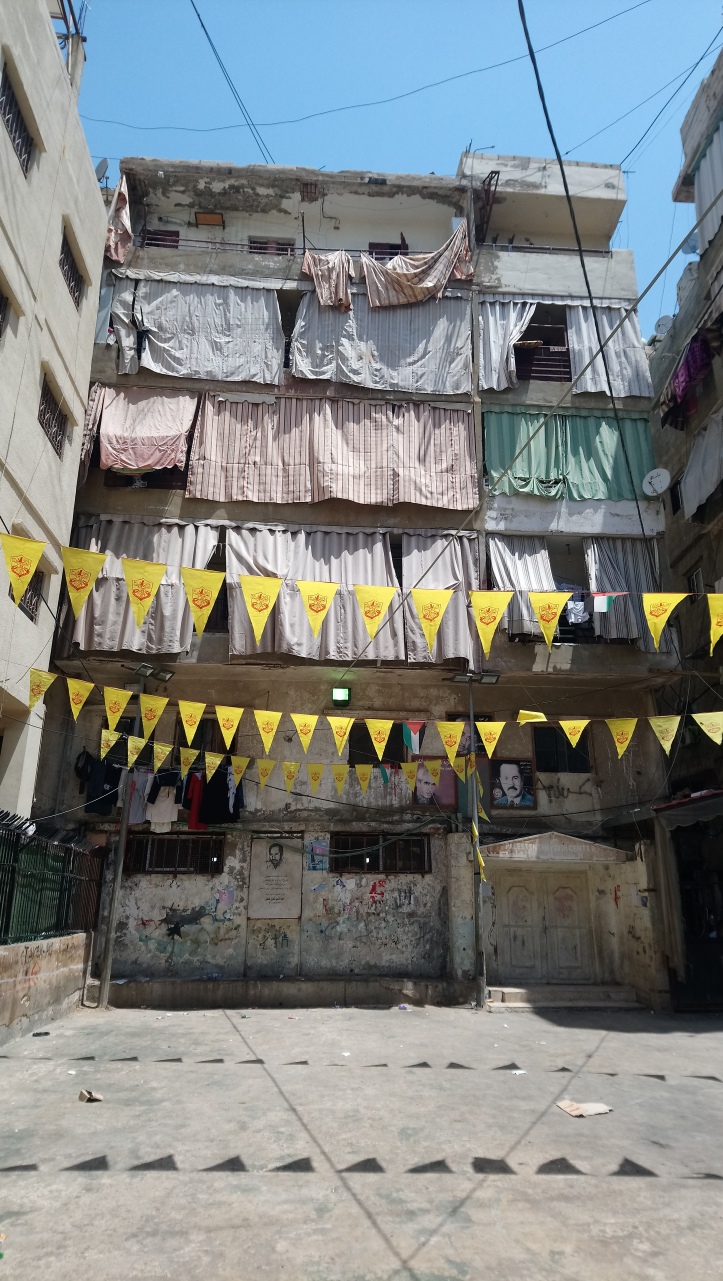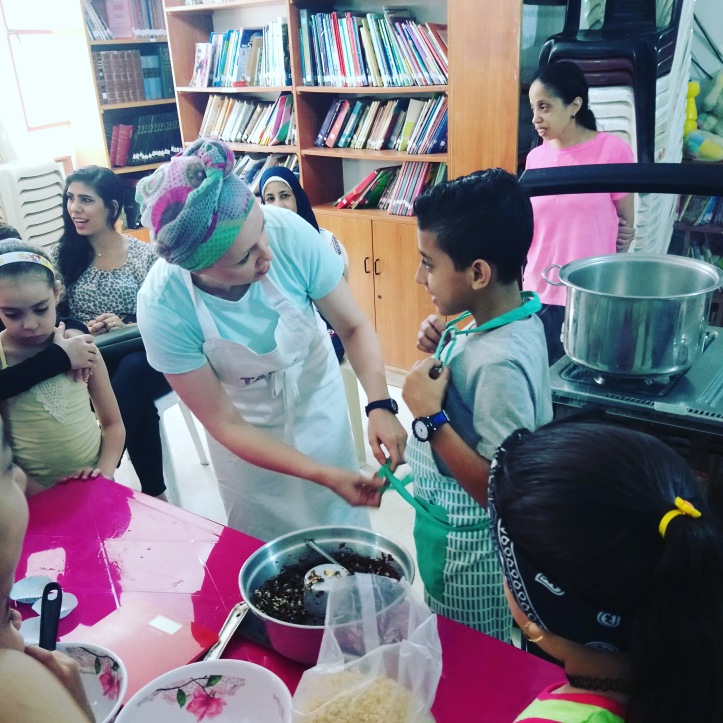“I am sorry, Shatila has no stars level. People are surviving because death has not enough space to take all of them. It is a joke but still reflecting some kind of bitterness of life which poor refugees are suffering from. Anyway, see you next week”.
I stare at the computer screen, unable to believe what I am reading. I thought I had seen a lot on my Tamu travels, but I would be lying if I said that those two sentences, written by the director of the youth centre in Shatila refugee camp, hadn’t made my skin crawl in apprehension.
I had planned to travel to Beirut, Lebanon, on my own (like I usually do), but a week prior to my departure, my son begged to see my work in action. “I am going to collect books and games for Shatila’s youth centre, and hopefully can help to run workshops with the kids, mum. It is about time I joined you for once”. For some people the idea of traveling to Lebanon with a 10 year old might seem an unusual choice of holiday destination, leave alone visiting one of the refugee camps there. Landing a week later in Beirut, and seeing the heavy military presence on the streets, the kids begging in the Hamra district, and the many battle-scarred buildings, pockmarked with bullet holes, I started questioning my decision…
Running through my schedule, full of meetings with leading local NGOs, visiting museums, markets, cookery classes, as well as simply observing the relaxed pace of life amongst the locals, I slowly started to understand the Lebanese approach of always trying to stay optimistic. In answer to my question, how do citizens manage to survive on their tiny salaries with such high prices on practically everything, the unstable political situation, and little in the way of social security, one of my contacts replied “In Lebanon we have a saying – ‘we live life as if we are drinking champagne on the edge of the cliff’”. Now, I thought, I was ready for my work in Shatila…
All my Lebanese friends and colleague, upon hearing about my plans to visit this infamous part of South Beirut, would roll their eyes and tut, saying how dangerous the area was, and that only a fool-hardy taxi driver would go there, leave alone locals. “No laws apply there, there are constant criminal brawls, drugs, disease”… Mr Abu, head of Youth center at Shatila, probably used to such stereotypes, said he would send a taxi driver to pick us up. “Morning, my friend and welcome to Lebanon! So you came and brought your son with you? I am glad I decided to come and pick you up myself. Sorry for my old vehicle, there are cushions on the back to soften this bumpy road”. As the central streets changed into more poverty-stricken neighbourhoods, Mr Abu continued “The camp was established in 1949, originally for 3000 people seeking refuge. The number of inhabitants has been growing, especially since the Syrian conflict, and now runs to the tens of thousands, without, might I add, any infrastructure added.” When we finally park in a dark narrow street, a tangle of electricity cables dangling over our heads, I glance at my son, who seems unfazed by it all.

“On Fridays we run activities for about 75 children between the ages of 6 and 14, but today, due to Ramadan, we’ll have around 25. But they are all excited to learn how to bake”. The youth centre in Shatila has a tiny square outside, where children can play – but this is the only open space in the entire camp. The majority of the children come here to receive some sort of tuition as local schools are often ‘oversubscribed’. Their homes are overcrowded, often without electricity or decent water, but as most of the families have been living here for over 30 years, this generation knows no other life. “Imagine how discouraging it is for them to study, knowing no matter how well they do, they will not be able to go to university – even if they managed to get a full scholarship abroad, they would not be able to leave Lebanon due to red tape. As Palestinians, we are banned from employment in more than 30 professions, banned from owning our own houses, with no possibility of getting Lebanese citizenship”. “Welcome to Paradise” – I remembered a phrase a Lebanese friend had said to me recently. Suddenly, it all made sense.

When I was little, growing up behind Iron Curtain in my native Ukraine, my grandmother used to tell me “Poverty is not a shameful thing. What is shameful is when people don’t appreciate things, and don’t look after them. You can be a poor person, but you always need to be clean and tidy”. If you had not seen the pictures from outside the centre, you would never have guessed we were baking at a refugee camp. Every child who attended had impeccable manners, was eager to learn, and washed their hands without being reminded before baking. A few hours later, as we watched the chocolate nests set, and whilst the children were playing with all the new games we had brought, Mr Abu handed me a dainty cup of freshly-brewed Arabic coffee and said “Thank you, not only for coming and doing your work, but for not being scared to bring your son, for your trust – for us it means a lot”. Apparently, we were the first ever well-wishers to visit with a child.

As our plane was taking off, my son looked from the window, waving goodbye. “I think the Shatila neighbourhood must be over there, Mum”. The rest of our plane journey we spent in silence, both ruminating on what could be done to fight such inequalities. A picture of two smiling boys, arms over each other’s shoulders, now stands on the shelf at home – a poignant reminder that stereotypes exist to be broken. I am thankful for having had the chance to share seeing this amazing and beautiful land with my son.

P.S. If you wish to contribute to Shatila Youth Centre, send me an email and I will put you in touch with Mr Abu Moujahed.

